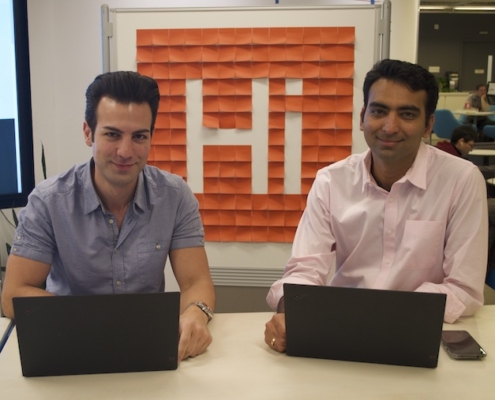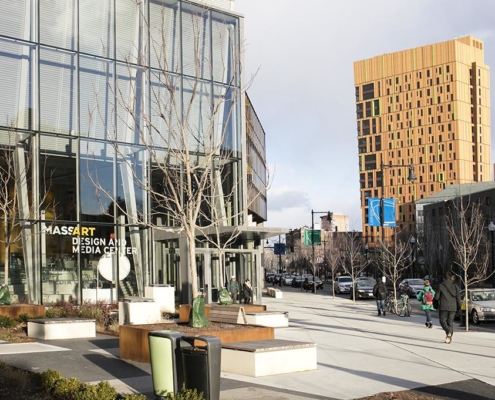New Study Urges State to Slow Down, Rethink Proposal to Protect Students from College Closings
Board of Higher Education proposal risks “false positives” that could doom colleges, creates potential conflict, and ignores ongoing federal process
Read coverage of this report in the Chronicle of Higher Education.
BOSTON – The Baker administration and the Massachusetts Board of Higher Education (BHE) should slow down a fast-tracked proposal to protect students from sudden, unexpected college closings such as what occurred at Mt. Ida College, and use the time to rethink its proposal from top to bottom, according to a new study published by Pioneer Institute.
“This is a serious problem that will only get worse. By 2017, the rate of closures or mergers among non-profit private colleges was twice the 2004-14 average,” said Greg Sullivan, author of A Risky Proposal for At-Risk Private Colleges: Ten Reasons Why the Board of Higher Education Must Rethink Its Plan. “Unfortunately, the proposed new regulations are not an effective way to address the challenge.”
Under the BHE proposal, a preliminary assessment of the financial viability of all private colleges in Massachusetts would be conducted using the “Teach-out Viability Metric” (TVM), a tool developed by EY-Parthenon under a no-bid, pro bono agreement.
Colleges identified as being at risk would be subject to monitoring by a newly created Office of Student Protection (OSP) to determine if the college has sufficient financial resources to complete both the current school year and the next.
Those found to be in danger of being unable to complete both years would be required to submit a thorough teach-out contingency plan for OSP approval, and notify students and other stakeholders of their status by December 1st.
Sullivan identifies a number of problems with the proposal. First, it has the potential to create “false positives” by wrongly identifying schools that are not experiencing undue financial strain. The required December 1 notification would essentially become a drop-dead date; applications for admission would virtually disappear, current students would look to transfer, and faculty and staff would look for new jobs.
The underlying components of TVM have not been disclosed. What is known is that it’s based on data from the Integrated Postsecondary Education Data System that is 18-24 months old when it’s released.
The proposal would also create a potential conflict of interest. Both BHE and the Department of Higher Education (DHE) are statutorily mandated to “act as advocates of public higher education institutions” that directly compete with private colleges. The BHE exempts public colleges and universities from the review all private colleges would undergo.
The board’s performance during the Mt. Ida crisis does not inspire confidence. It approved the University of Massachusetts’ acquisition of the college for use as a satellite campus of UMass Amherst, resulting in the termination of all Mt. Ida faculty members and the expulsion of its students from the campus.
At a May 2018 Senate Post Audit hearing, UMass President Marty Meehan said UMass should be “part of the equation” when more private colleges close.
The proposal is also myopic in that it ignores ongoing national efforts to improve early warning about colleges in financial distress. BHE has minimal experience in campus finance and it makes little sense to develop a whole new state bureaucracy when federal processes are underway that will likely bring to bear much more sophisticated analytic abilities.
“The U.S. Department of Education and its regional accrediting agency, the New England Commission of Higher Education, are the appropriate impartial entities to monitor and assess financial viability,” said Pioneer Executive Director Jim Stergios. “NECHE needs to up its game, but they have the expertise and the ability to maintain confidentiality of reporting.”
Among Sullivan’s other recommendations is that BHE should completely and exhaustively disclose the underlying components of the Teach-out Viability Metric and its built-in assumptions to allow interested parties to assess its strengths and weaknesses.
He also calls on the Commonwealth to use its existing power to hold boards of trustees at private institutions accountable for carrying out their fiduciary responsibilities. Sullivan urges the board to consider a DHE proposal to more fully educate, inform, and support boards of trustees.
The Board of Higher Education approved the proposal in January and created an aggressive timetable to implement. Legislation filed on March 6th would give the board the authority to compel colleges to provide the data necessary “to accurately and fairly determine the institution’s financial condition and to monitor such condition over time” and “to impose sanctions on institutions that do not comply in a timely manner.”
About the Author
Gregory Sullivan is Pioneer’s Research Director. Prior to joining Pioneer, Sullivan served two five-year terms as Inspector General of the Commonwealth of Massachusetts and was a 17-year member of the Massachusetts House of Representatives. Greg holds degrees from Harvard College, The Kennedy School, and the Sloan School at MIT.
About Pioneer
Pioneer Institute is an independent, non-partisan, privately funded research organization that seeks to improve the quality of life in Massachusetts through civic discourse and intellectually rigorous, data-driven public policy solutions based on free market principles, individual liberty and responsibility, and the ideal of effective, limited and accountable government.
Get our higher education updates!
Related Posts:











